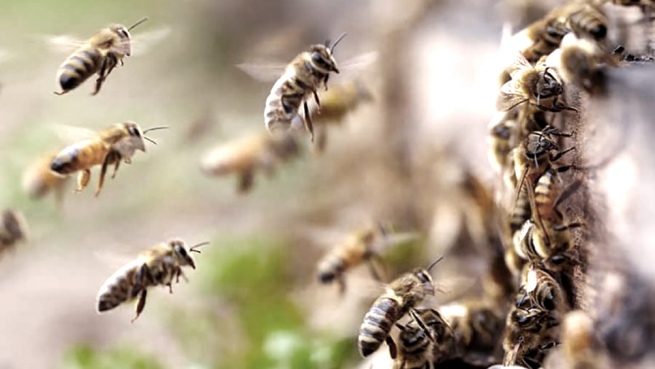the prolonged drought and rural fires in Corrienteswhich devastated 11% of the provincial territory, caused a loss of more than 50% in beekeeping production, industry sources reported.
The vice president of the “Monte Caseros” Agricultural and Electricity Cooperative (Caemc) and technician of the National Institute of Agricultural Technology (INTA), Paul Vallejossaid in statements to Télam that “of the 20,000 existing hives in the province, at least 10,000 will be lost.”
The director described that the beekeeping sector in Corrientes is made up of “more than 600 small producers in different parts of the province, who have between 25 and 30 hives each” and all were “severely affected” by drought and fires.
Both phenomena “enormously reduced the number of flowers and with it the nectar that the bees produce and need,” Vallejos explained, adding that the loss of colonies “is very important, also because they will not have a reserve for the winter, due to the lack of flowering in January, February and March”.

And in this sense, he announced that the true damage caused by the environmental catastrophe will be even more visible in October, “so it is estimated that the loss will exceed half of the colonies.”
Regarding the alternatives to save part of the beekeeping production, the INTA cooperative member and technician explained that “There is a rapid need to replace flower nectar with sugar and a protein component.”
In this regard, he pointed out that although it is not the same as nectar, “it helps the colonies live.”
“We need to buy the products and distribute them to small producers and, in this process, the most complicated part is logistics,” Vallejos explained.
In the same sense, he explained that “taking the product to each place, mobilizing vehicles and human resources to do it, is the most difficult and it is in these matters that the Ministry of Production should emphasize territoriality.”

“Producers urgently need to save their colonies and multiply bees. It is essential to strengthen beekeeping production so affected and start to recover it, because in addition, bees perform a service in the ecosystem.
Regarding the production of the “Monte Caseros” cooperative, he explained that they produce the “Sol Nativo” brand of honey, which they market in the Federal Capital, Rosario and the Capital of Corrientes, among other cities.
Finally, the INTA agronomist mentioned that honey is produced in the province of Corrientes in the towns of Monte Caseros, Saladas, Alvear, Bella Vista, Mocoretá and Esquina.

















